The Center on Community Philanthropy at the Clinton School of Public Service graduated the first class of its Racial Healing Certification Program in late January. Dr. Alandra Washington, vice president for quality and organizational effectiveness at the W.K. Kellogg Foundation, offered the convocation speech.
The Center launched this program in August of 2021 in partnership with the National Compadres Network and with support from the W.K. Kellogg Foundation. The Racial Healing Certification Program, led by Dr. Charlotte L. Williams, is the first designation of its kind designed to provide specialized training, education and unique experiences that promote skills development and competencies in the targeted area of racial healing. The inaugural cohort was comprised of nine nonprofit leaders.
The program is structured in three phases. Cohort members begin the yearlong commitment by acquiring tools and developing skills to engage in personal and interpersonal work of racial healing. Next is experiential learning at the community level through a southern tour, which includes a visit to the Equal Justice Initiative in Montgomery, Alabama, and sites related to the Civil Rights Movement. As a capstone, each cohort member applies their learning by designing and piloting a racial healing program tailored to their own organization.
In her convocation remarks, Dr. Washington referenced her own family history and her “full circle moment” in returning to Arkansas to deliver her congratulations:
Arkansas is the place from where my own ancestors hail. My 95-year-old mother grew up in Lonoke County until she left home and married my father. When I told her about my trip, she was excited and began to reminisce about her experiences growing up here in the 30s and 40s – not only of the hard work on their family farm but of the power of her tight-knit Black community who had each other’s backs. She talked about what she called the ‘forces that tried to keep them down’ and how they had to fight to be treated and valued as human beings.
She then reflected on the progress in attention to the need for racial healing and equity in this country:
I am encouraged by the increased awareness of and support for racial equity in America. We are experiencing widespread acknowledgment of the social and economic inequities that exist within the United States. However, acknowledging these injustices is only one part of achieving true racial equity. Philanthropic organizations play an essential role and can start by beginning or continuing their own racial equity and healing journey.
She issued a call to action, emphasizing how important it was that philanthropy approach its equity work not just as funders but as institutions with power that can and must be shared.
Our work in racial equity and healing can’t be thought of solely as a funding priority; it must be a critical component of our own way of being. It is not enough for communities to have a seat at the table. They deserve a seat, a microphone, and the ability to add additional place settings for others to join them.
Dr. Washington closed her remarks on a note of optimism:
I believe that with more leaders like you all, we are ready to be agile and adapt so that we can truly reflect and serve our grantees and communities. More than I have ever been before, I am sure that we can create a world where every child can thrive.
After Dr. Washington concluded, the nine graduates received their certificates, and each person re-committed themselves to the critical work of racial healing – both in their individual organizations and across the broader field of philanthropy. The convocation represented the culmination of a shared dream between the Clinton School’s Center on Community Philanthropy and the W.K. Kellogg Foundation. As La June Montgomery Tabron, WKKF’s president and CEO, said, “This certification program is an effort to professionalize some of the most needed capacities and skills for our nation right now.”

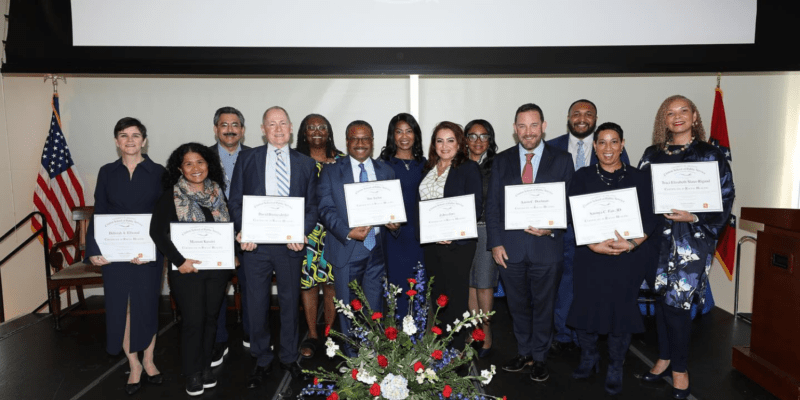

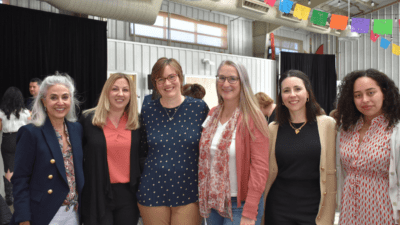
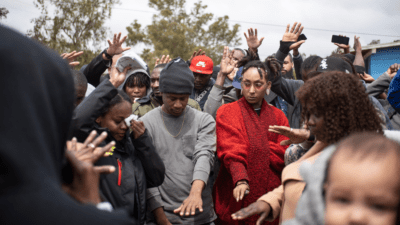
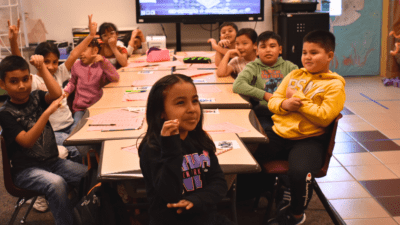
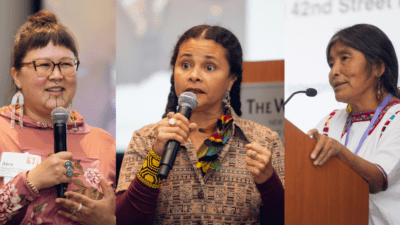

Comments